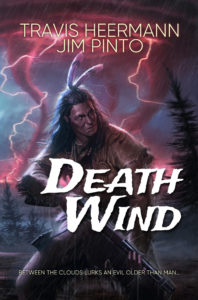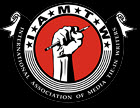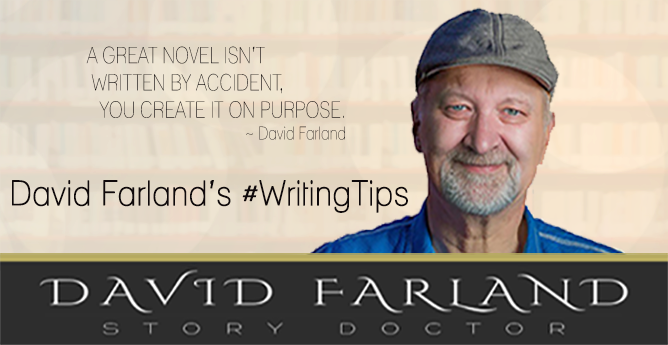If you have a writing career that ultimately spans decades, it will inevitably fluctuate with highs and lows—and so will the exultation and despair that follows such fluctuations. Contracts and literary agents may come and go. Publishing companies can dissolve and your rights lost in a morass of legalese and bankruptcy. The “Mid-List Author Death Spiral,” as it’s called, is a phenomenon well-known to several of my author acquaintances. And this is beyond the usual barrage of rejections we all have to cope with. Unless you’re prepared to go quietly into that good night, you will have to find ways to bounce back from setbacks like these—or else you won’t.
In the mid-1990s, I was one of those young writers desperate for industry validation, ripening me into the perfect fruit for the illegitimate predators out there. These were the days when the Web was in its infancy. There were no valuable websites like Writer Beware, Preditors and Editors, and the Association of Author Representatives out there waving red flags about snake-oil peddlers and con artists. Of course I was delighted when the Deering Literary Agency agreed to represent me. All they wanted was $800 to do it. I studied the contract closely, consulted a lawyer, but everything seemed legit—except for the fee. Young (erm, naïve is the more proper word) and desperate as I was, despite being broke, despite the warning bells, I went through with it.
A year passed with no word. Eventually the Deerings (an entire family of con artists) came back to me asking for another $500 for another year’s representation. More warning bells, more phone calls, but like I said, they were con artists and knew exactly what to say to get me to fork it over. So I did.
Six months later, they called me with contract offer. Joy! Exultation!
The contract offer was from Commonwealth Publications, of Edmonton, Alberta. Hmm, never heard of them before. The sample covers they sent sucked, comparable to a middle-school art class. I mean, terrible, not even by the talented art students. Warning bells, warning bells. Calls to agent—who are these people?—much reassurance. And what’s this clause they’re calling “joint venture,” wherein they require the author to contribute $3,850 to “share the publishing costs”? Oh, well, that’s a pioneering new publishing model. Authors share the costs but get a much higher royalty percentage.
So, despite the warning bells, I borrowed the money (remember, I was broke) and handed it over. This was about 1995. I was 25 years old.
I’m going to abbreviate this long, wrenching tale and say that my book, an epic fantasy titled The Ivory Star, was published in the spring of 1997, a year behind schedule. Dozens of other Commonwealth authors never even saw their book published.
Three months after publication, Commonwealth Publications evaporated. Their owner/CEO, Donald Phelan, looted the company of millions of dollars and fled to the Bahamas, leaving his company to implode and all the authors to drown in a pile of steaming excrement.
I never saw a dime of royalties.
One silver lining: the authors formed a class-action lawsuit, sued in Canadian court, and received our rights back, plus a judgment of $10 million. None of this judgment was ever paid because Commonwealth possessed no real assets, and Donald Phelan agreed to the settlement only on the condition that he not be named personally as a defendant. He was able to take the money and run, leaving authors holding the empty sack.
And about the time Commonwealth was imploding, the Deerings had decided to launch their own version of the same scam. Dorothy, Charles, and Daniel Deering formed a company called Sovereign Publishing and started bilking more naïve, desperate authors out of “representation fees” and then “selling” those books to Sovereign Publishing, which then garnered another round of “joint venture fees.” Unlike Commonwealth, however, Sovereign never published a single book, because the FBI came sniffing around.
The good news? The Deerings were all convicted of various types of fraud, and spent several years each in federal prison.
The bad news? They’re out of the pen now, and I suspect working on similar schemes, heedless of the dreams they crush.
FBI agent Jim Fischer has written a book about the case called Ten Percent of Nothing. There’s also plenty of information on Commonwealth and the Deerings on the website Writer Beware.
But there’s one more kick to the solar plexus in this Insult to Injury Extravaganza.
An unscrupulous few of Commonwealth’s former employees banded together, cooked up a scheme, and bought up the company’s stock of books for pennies on the dollar when all of the company’s assets were sold at auction to cover some of its debts. With this warehouse full of almost-free books, these people formed another “publishing company” called Picasso Publications, and attempted to present themselves as the publisher of these titles and sell the books on Amazon. Authors were never contacted nor informed of this move. As soon as wind of this spread and Amazon shut them down, Picasso evaporated just like Commonwealth did, and an unknown number of books along with them.
Whew. Long story, wasn’t it?
Try living through it.
But this is just the prelude. I still haven’t reached the point of my essay.
After three years in total of this sort of emotional pummeling, when it finally all unraveled, I had stopped writing. I just couldn’t do it anymore. As far as I was concerned, my career was a smoking wreck with a flaming oil slick trailing behind. The self-flagellation never quite reached the clinical level, but only because I found other outlets for my grief and shame.
I plunged myself into other creative avenues, such as minitature wargames, roleplaying games, video games. The storytelling urge that had turned me into a writer made me a pretty good GM. I painted hundreds of miniatures. Orc armies, dark elf armies, Norman armies, troll armies, samurai armies, Viking armies, space marine armies. I got pretty damn good at it over a couple of years.
For about two years, I didn’t write a word.
But then something happened. Not all at once, but more like someone slowly turning up the volume knob on that voice in my head that had started saying, “You should be writing,” the urge to write again slunk back like a coyote hovering around the campfire of my consciousness. Eventually I decided to feed the damn thing.
So I started on a new project. A samurai novel. I threw myself into research, into nights at the library, into reading history books and encyclopedias, and into watching more samurai films. The story I was writing became Heart of the Ronin, the first book of my Ronin Trilogy.
And over the course of the next decade, this decision—to write again—turned my life around.
With my shiny new chapters in hand, I attended my very first writing conference in 1999. At that conference, I met real agents, real editors. Lo and behold, they were just people! Kind people! Friendly people! People interested in what I was working on! One of the agents took the time to offer me some feedback on my samurai novel project, and even though she ultimately declined to represent me, I still feel very much indebted to her for that guiding hand. For the first time, I had the professional validation I had been lacking.
Writing the story that became the Ronin Trilogy led me to throw my life out the window and start over. I moved to Japan and lived there for three years. During this time, I found representation with a real literary agent, one of the big NYC ones, who sold Heart of the Ronin to Gale-Cengage’s Five Star imprint. After a decade since the Commonwealth/Deering cesspit, my career train was back on the tracks.
I returned to the U.S. then and went to grad school, like I had always wanted to. I started going to conventions and networking with agents, editors, and other writers. I wrote more books and sold them to small presses. I attended the Odyssey Writing Workshop in 2009. My train was starting to roll out of the station. Nowadays I feel like it’s moving at a slow but steady pace, with opportunities to pick up some speed popping up occasionally.
I have more books to write, and I’ll be damned if I ever suffer another setback like what Commonwealth and the Deerings did to me.
What I would like the Conscientious Reader to take away from all this is a number of points.
Lesson 1: Money always flows to the writer, never, ever, ever the other way around. Not to agents, not to publishers, not to anthologies or magazines.
Lesson 2: Trust your instincts. If something stinks, best pay attention and start digging. These days, the internet is a powerful research tool that I didn’t have twenty years ago.
Lesson 3: If you’re a writer whose Muse has scarpered off to grace someone else’s lap, whose desire to write is just gone, the urge to do so will return. Doesn’t matter if you’ve experienced your own train wrecks of whatever scale. The Writer Instinct may be retreat into a dark, little hole, but it’s still there, waiting for the coast-is-clear. And if it doesn’t?
Your heart would certainly be safer if it stayed away.
But writers don’t believe in playing it safe. We’re already insane, and we embrace it.
If it’s gone for now, trust that it will come back, and it just might change your life.
About the Author: Travis Heermann

 Travis Heermann’s latest novel Death Wind, co-authored with jim pinto, was published in September 2016, by WordFire Press.
Travis Heermann’s latest novel Death Wind, co-authored with jim pinto, was published in September 2016, by WordFire Press.
Freelance writer, novelist, award-winning screenwriter, editor, poker player, poet, biker, he is a graduate of the Odyssey Writing Workshop and the author of The Ronin Trilogy, The Wild Boys, and Rogues of the Black Fury, plus short fiction pieces in anthologies and magazines such as Apex Magazine, Perihelion SF, Fiction River, Historical Lovecraft, and Cemetery Dance’s Shivers VII. As a freelance writer, he has produced a metric ton of role-playing game work both in print and online, including content for the Firefly Roleplaying Game, Legend of Five Rings, d20 System, and EVE Online.
He recently returned to the U.S. from New Zealand with a couple of lovely ladies and toting more Middle Earth souvenirs than is reasonable.
You can find him on…
Twitter
Facebook
Wattpad
Goodreads
Blog
Website

 Since the theme of the month for the Fictorians concerns adaptions, I thought I would introduce our website visitors to the professional organization for media tie-in works. While not as well-known as the Science Fiction and Fantasy Writers of America (SFWA), the Horror Writers Association (HWA), or Mystery Writers of America (MWA), the IAMTW is filled with many recognizable names who are members of those other organizations.
Since the theme of the month for the Fictorians concerns adaptions, I thought I would introduce our website visitors to the professional organization for media tie-in works. While not as well-known as the Science Fiction and Fantasy Writers of America (SFWA), the Horror Writers Association (HWA), or Mystery Writers of America (MWA), the IAMTW is filled with many recognizable names who are members of those other organizations.



